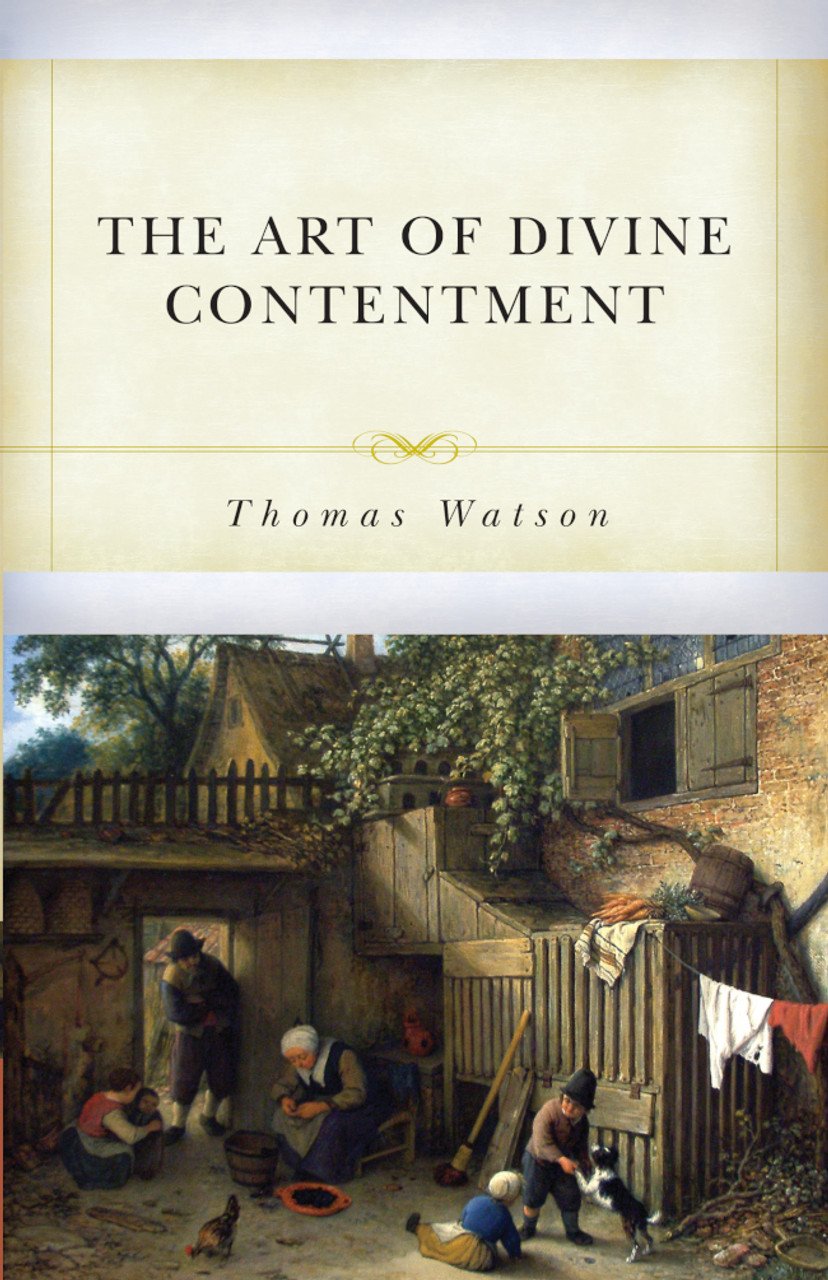True Contentment is Godliness
Posted by Thomas Watson on 29th Jan 2021
The following article is adapted from Thomas Watson’s classic on Christian contentment, The Art of Divine Contentment. Watson takes Philippians 4:11 as the basis for his treatise and guides the reader through the nature of, motivations for, and hindrances to divine contentment.
We live in an age when contentment is a word not often found on a Christian's lips. The society around us invites us to strive after an endless pursuit of material possessions. Watson offers a much-needed corrective on this impossible to satisfy behavior when it is devoid of Christ. True contentment can only be found by the Christian living in pursuit of Christ instead of possessions. - The blog editor
I have learned, in whatsoever state I am, therewith to be content. Philippians 4:11
Here, I will describe contentment. It is a sweet temper of spirit whereby a Christian carries himself in an equal poise in every condition. The nature of this will appear more clearly in three aphorisms.
1. Contentment is a divine thing; it becomes ours, not by acquisition, but by infusion. It is a slip taken off from the tree of life and planted by the Spirit of God in the soul. It is a fruit that grows not in the garden of philosophy but is of a heavenly birth. It is, therefore, very observable that contentment is joined with godliness. "But godliness with contentment is great gain" (1 Timothy 6:6).
It is a slip taken off from the tree of life and planted by the Spirit of God in the soul. It is a fruit that grows not in the garden of philosophy but is of a heavenly birth.
Contentment is a consequence of godliness, concomitant[1], or both, I call it divine to distinguish it from that contentment at which a moral man may arrive. Heathens seem to have this contentment, but it is only the shadow and picture of it-the beryl, not the true diamond. Theirs is but civil; this is sacred. Theirs is only from principles of reason; this is of religion. Theirs is lit only at nature's torch, this one at the lamp of Scripture. Reason may teach contentment a little, as thus: "Whatever my condition is, this is that to which I am born. If I meet with crosses, it is but a universal misery. All have their share; why, therefore, should I be troubled?" Reason may suggest this and, indeed, this may be constraint rather than contentment; but to live securely and cheerfully upon God in the abatement of creature supplies, religion alone can bring this into the soul's treasury.
2. Contentment is an intrinsic thing. It lies within a man not in the bark but in the root. Contentment has both its fountain and stream in the soul. The beam does not have its light from the air. The beams of comfort which a contented man has do not arise extrinsically from foreign comforts but from within. As sorrow is seated in the spirit ("the heart knows its own grief," Proverbs 14:10), so contentment lies within the soul and does not depend on externals. Hence I gather that outward troubles cannot hinder this blessed contentment. It is a spiritual thing and arises from spiritual grounds, namely the apprehension of God's love. When there is a tempest without, there may be music within. A bee may sting through the skin, but it cannot sting to the heart. Outward afflictions cannot sting a Christian's heart where contentment lies. Thieves may plunder us for our money and silver, but not of this pearl of contentment unless we are willing to part with it, for it is locked up in the cabinet of the heart. The soul which is possessed of this rich treasure of contentment is like Noah in the ark, who can sing in the midst of a deluge.
Outward afflictions cannot sting a Christian's heart where contentment lies.
3. Contentment is a habitual thing; it shines with a fixed light in the firmament of the soul. Contentment does not appear only now and then, as some stars which are seldom seen. It is a settled temper of the heart. One action does not distinguish the character. He is not said to be a liberal man who gives alms once in his life (a covetous man may do so); but he is said to be liberal who is "given to liberality" (Romans 12:13), that is, who upon all occasions is willing to indulge the necessities of the poor. So he is said to be a contented man who is given to contentment. It is not casual but constant. In his Rhetoric, Aristotle distinguishes between colors in the face that arise from passion and those that arise from complexion. The pale face may look red when it blushed, but this is only a passion. He is said properly to be ruddy and sanguine who is constantly so; it is his complexion. He is not a contented man who is so occasionally, and perhaps when he is pleased, but who is so constantly. It is the habit and complexion of his soul.
[1] “Concomitant” = accompany, companion, or associated with something. Watson is saying here that contentment is either a consequence of godliness or it goes hand in hand with godliness, or perhaps both.

True contentment is godliness.
Thomas Watson’s classic treatise on Christian contentment is available from Reformation Heritage Books.
